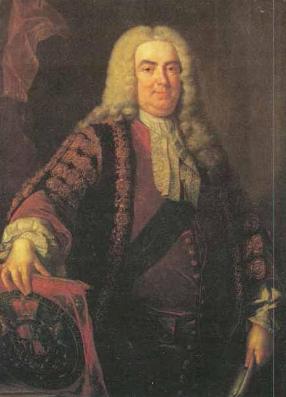poj 3126 -- Prime Path
Prime Path
| Time Limit: 1000MS | Memory Limit: 65536K | |
| Total Submissions: 11288 | Accepted: 6398 |
Description
 The ministers of the cabinet were quite upset by the message from the Chief of Security stating that they would all have to change the four-digit room numbers on their offices.
The ministers of the cabinet were quite upset by the message from the Chief of Security stating that they would all have to change the four-digit room numbers on their offices. — It is a matter of security to change such things every now and then, to keep the enemy in the dark.
— But look, I have chosen my number 1033 for good reasons. I am the Prime minister, you know!
— I know, so therefore your new number 8179 is also a prime. You will just have to paste four new digits over the four old ones on your office door.
— No, it’s not that simple. Suppose that I change the first digit to an 8, then the number will read 8033 which is not a prime!
— I see, being the prime minister you cannot stand having a non-prime number on your door even for a few seconds.
— Correct! So I must invent a scheme for going from 1033 to 8179 by a path of prime numbers where only one digit is changed from one prime to the next prime.
Now, the minister of finance, who had been eavesdropping, intervened.
— No unnecessary expenditure, please! I happen to know that the price of a digit is one pound.
— Hmm, in that case I need a computer program to minimize the cost. You don't know some very cheap software gurus, do you?
— In fact, I do. You see, there is this programming contest going on... Help the prime minister to find the cheapest prime path between any two given four-digit primes! The first digit must be nonzero, of course. Here is a solution in the case above.
1033The cost of this solution is 6 pounds. Note that the digit 1 which got pasted over in step 2 can not be reused in the last step – a new 1 must be purchased.
1733
3733
3739
3779
8779
8179
Input
One line with a positive number: the number of test cases (at most 100). Then for each test case, one line with two numbers separated by a blank. Both numbers are four-digit primes (without leading zeros).
Output
One line for each case, either with a number stating the minimal cost or containing the word Impossible.
Sample Input
3 1033 8179 1373 8017 1033 1033
Sample Output
6 7 0
题意:给出两个素数,问至少需要多少步将第一个转换成第二个。每次只能转换一位。并且第一位不能是零。
思路:广搜枚举每一位,每一位都9或10种情况。水题。

1 /*====================================================================== 2 * Author : kevin 3 * Filename : PrimePath.cpp 4 * Creat time : 2014-08-03 16:07 5 * Description : 6 ========================================================================*/ 7 #include <iostream> 8 #include <algorithm> 9 #include <cstdio> 10 #include <cstring> 11 #include <queue> 12 #include <cmath> 13 #define clr(a,b) memset(a,b,sizeof(a)) 14 #define M 15000 15 using namespace std; 16 int isprime[M+5],vis[M],cnt[M]; 17 int a,b; 18 void MakePrime() 19 { 20 clr(isprime,0); 21 isprime[0] = isprime[1] = 1; 22 for(int i = 2; i < M; i++){ 23 if(!isprime[i]){ 24 for(int j = i+i; j < M; j+=i){ 25 isprime[j] = 1; 26 } 27 } 28 } 29 } 30 void BFS(int s) 31 { 32 clr(vis,0); 33 clr(cnt,0); 34 vis[s] = 1; 35 queue<int>que; 36 que.push(s); 37 while(!que.empty()){ 38 int t = que.front(); 39 que.pop(); 40 if(t == b){ 41 printf("%d\n",cnt[t]); 42 break; 43 } 44 /*------------------处理第1位------------------*/ 45 int no1 = t/1000; 46 int temp = t - no1*1000; 47 for(int j = 1; j <= 9; j++){ 48 if(j == no1) continue; 49 int change_num = j*1000+temp; 50 if(!isprime[change_num] && !vis[change_num]){ 51 que.push(change_num); 52 vis[change_num] = 1; 53 cnt[change_num] = cnt[t] + 1; 54 } 55 } 56 /*---------------------end----------------------*/ 57 /*------------------处理第2位-------------------*/ 58 int no2 = t/100%10; 59 int s2 = t%100; 60 for(int j = 0; j <= 9; j++){ 61 if(j == no2) continue; 62 int change_num = no1*1000+j*100+s2; 63 if(!isprime[change_num] && !vis[change_num]){ 64 que.push(change_num); 65 vis[change_num] = 1; 66 cnt[change_num] = cnt[t] + 1; 67 } 68 } 69 /*---------------------end----------------------*/ 70 /*------------------处理第3位-------------------*/ 71 int no3 = t/10%10; 72 s2 = t/100; 73 int s1 = t%10; 74 for(int j = 0; j <= 9; j++){ 75 if(j == no3) continue; 76 int change_num = s2*100+j*10+s1; 77 if(!isprime[change_num] && !vis[change_num]){ 78 que.push(change_num); 79 vis[change_num] = 1; 80 cnt[change_num] = cnt[t] + 1; 81 } 82 } 83 /*---------------------end---------------------*/ 84 /*-----------------处理第4位-------------------*/ 85 int no4 = t%10; 86 int s3 = t-no4; 87 for(int j = 0; j <= 9; j++){ 88 if(j == no4) continue; 89 int change_num = s3 + j; 90 if(!isprime[change_num] && !vis[change_num]){ 91 que.push(change_num); 92 vis[change_num] = 1; 93 cnt[change_num] = cnt[t] + 1; 94 } 95 } 96 /*--------------------end----------------------*/ 97 } 98 } 99 int main(int argc,char *argv[]) 100 { 101 MakePrime(); 102 int t; 103 scanf("%d",&t); 104 while(t--){ 105 scanf("%d%d",&a,&b); 106 BFS(a); 107 } 108 return 0; 109 }
Do one thing , and do it well !


